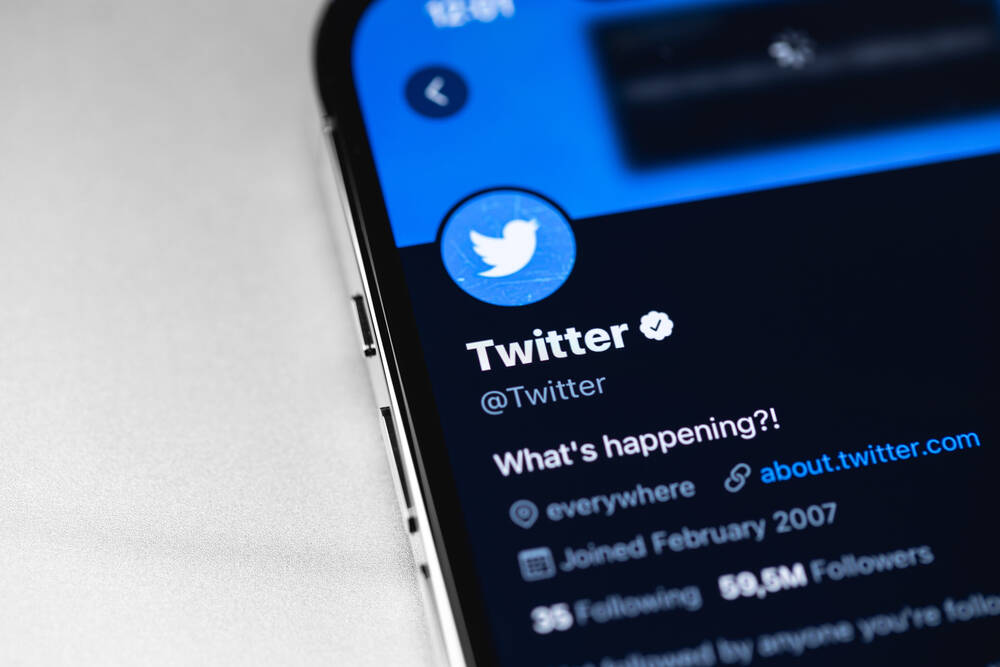Twitter Offers To Cough Up 80 Days Of Annual Sales To Settle 'false' User Count Lawsuit

Twitter has offered to pay $809.5m to settle a class-action lawsuit filed in 2016 accusing it of misleading investors by falsely inflating its number of monthly active users.
“The proposed settlement resolves all claims asserted against Twitter and the other named defendants without any admission, concession or finding of any fault, liability or wrongdoing by the Company or any defendant,” the web biz stated in an announcement. “Twitter and the individual defendants continue to deny any wrongdoing or any other improper actions.”
The micro-blogging site said it is prepared to cough up the cash in the fourth quarter of 2021, according to a filing with America's financial watchdog, the SEC. To put this in context, Twitter recorded a $1.13bn net loss in 2020 from revenues of $3.72bn. The settlement thus represents about 80 days of annual sales.
Doris Shenwick, a Twitter shareholder, sued the biz in federal district court in northern California on behalf of her fellow investors. Shenwick claimed executives at Twitter told Wall St analysts at an all-day meeting in November 2014 that the social network's number of monthly active users (MAUs) was expected to jump “to over 550 million in the intermediate term and ... over a billion over the longer term,” according to court documents [PDF].
When Twitter announced its figures for its 2014 financial year in February 2015, bosses painted a rosy outlook for the company, and said it expected to boost its popularity with new products and services in the near future.
At that time, it said it had 288 million MAUs, up 20 per cent year-over-year. Twitter also around that time stopped publishing certain metrics, such as the number of timeline views, making it difficult for investors to see how often users were actually visiting the site. It's claimed, for instance, that Twitter would send messages to dormant account holders to get them to log in just once, and thus count as a monthly active user. Since 2018, the biz reports "monetizable daily active users."
Its stock price rose 17 per cent in one day to $48.01 after the annual results were revealed, and sank following the next quarter: its figures for Q1 FY 2015, released at the end of April that year, showed Twitter MAUs had increased by only five per cent. The stock price dropped by 18 per cent, and another nine per cent the next day to $38.49.
"However, the stock continued to trade at artificially inflated levels," the lawsuit claimed, because Twitter "assured investors that new initiatives to drive user growth and engagement were still in the early stages." When the next financial report landed at the end of July, Twitter’s stock price fell 15 per cent to $31.24 as the number of MAUs grew by only one per cent. In other words, growth was slowing or had stalled whereas the company earlier boasted MAUs were going to the moon, or over a billion to be precise.
- Uber is now a food delivery company with a substantial sideline in taxis
- Facebook removes about as many fake accounts as it has actual monthly users (yes, billions) in effort to clean up online
- One in 12 Tweeps are bots
- Twitter shares balloon on another quarter of ho-hum results
“As a result of defendants’ false statements, Twitter common stock traded at artificially inflated prices during the class period,” the lawsuit alleged. And when the market realized the biz wasn't growing its audience as promised, "the company’s stock was hammered by massive sales, sending Twitter’s stock price down 40 per cent from its class period high of $52.87 per share on April 7, 2015, and causing economic harm and damages to plaintiff and members of the class."
Twitter was thus accused of making “false and misleading statements by misrepresenting Twitter’s user engagement metrics and engaged in a scheme to deceive the market,” and breaking the Securities Exchange Act of 1934. The lawsuit covers the events from February 2014 to July 2015.
The hundreds of millions of dollars set to be paid by Twitter will cover at least some of the money lost by investors from the tanked share price as well as lawyer fees. A judge has to approve the settlement. Twitter declined to comment. Its share price today is, funnily enough, $60.95. ®
From Chip War To Cloud War: The Next Frontier In Global Tech Competition
The global chip war, characterized by intense competition among nations and corporations for supremacy in semiconductor ... Read more
The High Stakes Of Tech Regulation: Security Risks And Market Dynamics
The influence of tech giants in the global economy continues to grow, raising crucial questions about how to balance sec... Read more
The Tyranny Of Instagram Interiors: Why It's Time To Break Free From Algorithm-Driven Aesthetics
Instagram has become a dominant force in shaping interior design trends, offering a seemingly endless stream of inspirat... Read more
The Data Crunch In AI: Strategies For Sustainability
Exploring solutions to the imminent exhaustion of internet data for AI training.As the artificial intelligence (AI) indu... Read more
Google Abandons Four-Year Effort To Remove Cookies From Chrome Browser
After four years of dedicated effort, Google has decided to abandon its plan to remove third-party cookies from its Chro... Read more
LinkedIn Embraces AI And Gamification To Drive User Engagement And Revenue
In an effort to tackle slowing revenue growth and enhance user engagement, LinkedIn is turning to artificial intelligenc... Read more

